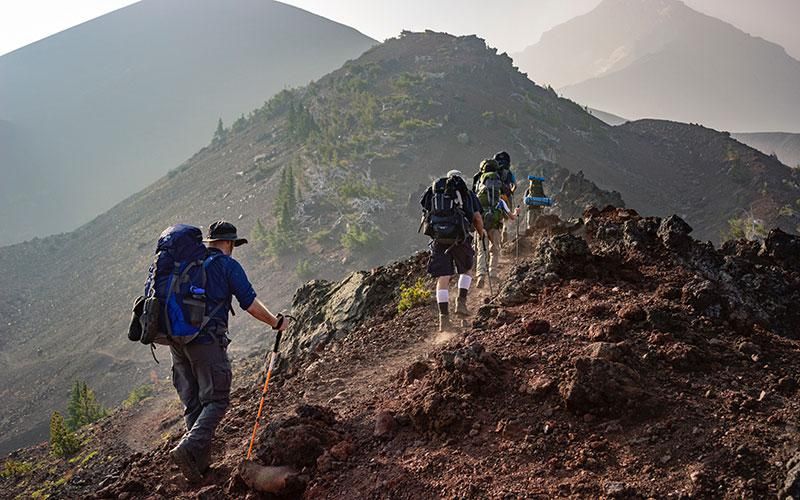1: Hiking with a experienced partner
For most hiking beginners, we didn't advise them to go hiking solo, it is dangerous for a hiking beginner with little experience hike to an unknown place, so hiking with an experienced partner for company and safety and you can learn more hiking knowledge from them.
2: Tell someone your hiking plans before heading off
This is a important tips that could save your life at the crucial moment. You'd better tell someone(your famaily or good friend) where and when you’ll be hiking, you can often update your social media such as Instagram, Facebook or Twitter. Let people know where you are going, if something bad happens, this will increase your chances of being found dramatically.
3: Pick a hike plan for beginners
Before hiking, you need to plan where you are going, how to get there, and how to get home safely. As a hiking beginner, don't pick a hike that’s either too long or has too much climb. And you'd better make a training plan in advance; do an extra mile or two each week and build up to your target distance.
Don't get lost, be sure to factor in distance, elevation, conditions and your time when choosing a hike. Knowing what to expect, where the turns are, and how long it should take you. Having basic navigation skills will really help you out on the trail, you can using apps such as Google GPS, but sometimes electronic equipment may be affected by the signal or the equipment may be damaged and cannot work, so physical maps and a compass are very important, you need to learn how to use them before hiking.
4: Pick hiking essentials for beginners
Comfort and safe are key. Different people also choose different gear for hiking, but the same point is to find what you feel comfortable exercising in and making sure you are safe in the outdoors. Here we share the hiking gear for beginners from one experienced hiker and why they pick them?
5: Conserve your energy
In hiking, steady is better than quick. you need to conserve your energy, especially on a long hike. You never know what situation you’ll have to use your energy on later. Hiking at a comfortable pace is also a great way just to soak it all in. Enjoy the outdoors, enjoy the fresh air, keep your eyes open for wildlife, and have fun.
6: Understand Your Map
More and more people rely on smartphones for navigation, it is very easy and accurate, so they maybe can't understand printable topo map. But electronic navigation equipment sometimes does not work properly, so a combination of electronic navigation and paper is a good route for hiking beginners. Before your hiking, you need to print out the hiking guide and map. Read over the guide, study the map, and have a good idea of what to expect.
7: Choose a right time
The right time and weather are very important for hiking beginners. I recommend choosing a cool day, the weather won't get too hot and rainy, generally spring and autumn are best, I like hiking in the spring because I the warm spring breeze and I can admire the spring flowers and the growth of everything. I highly recommend that you start your hike as early as possible, you should start your hike in the early morning because you can breathe the fresh air; and the later you leave it, the more crowds there will be. It might be harder to park, etc.
8: Watch Your Feet
You need to watch your feet during a hike, avoid twisting your ankle, slipping on a rock, tripping on a root, or worse, stepping on some poisonous wildlife.





















